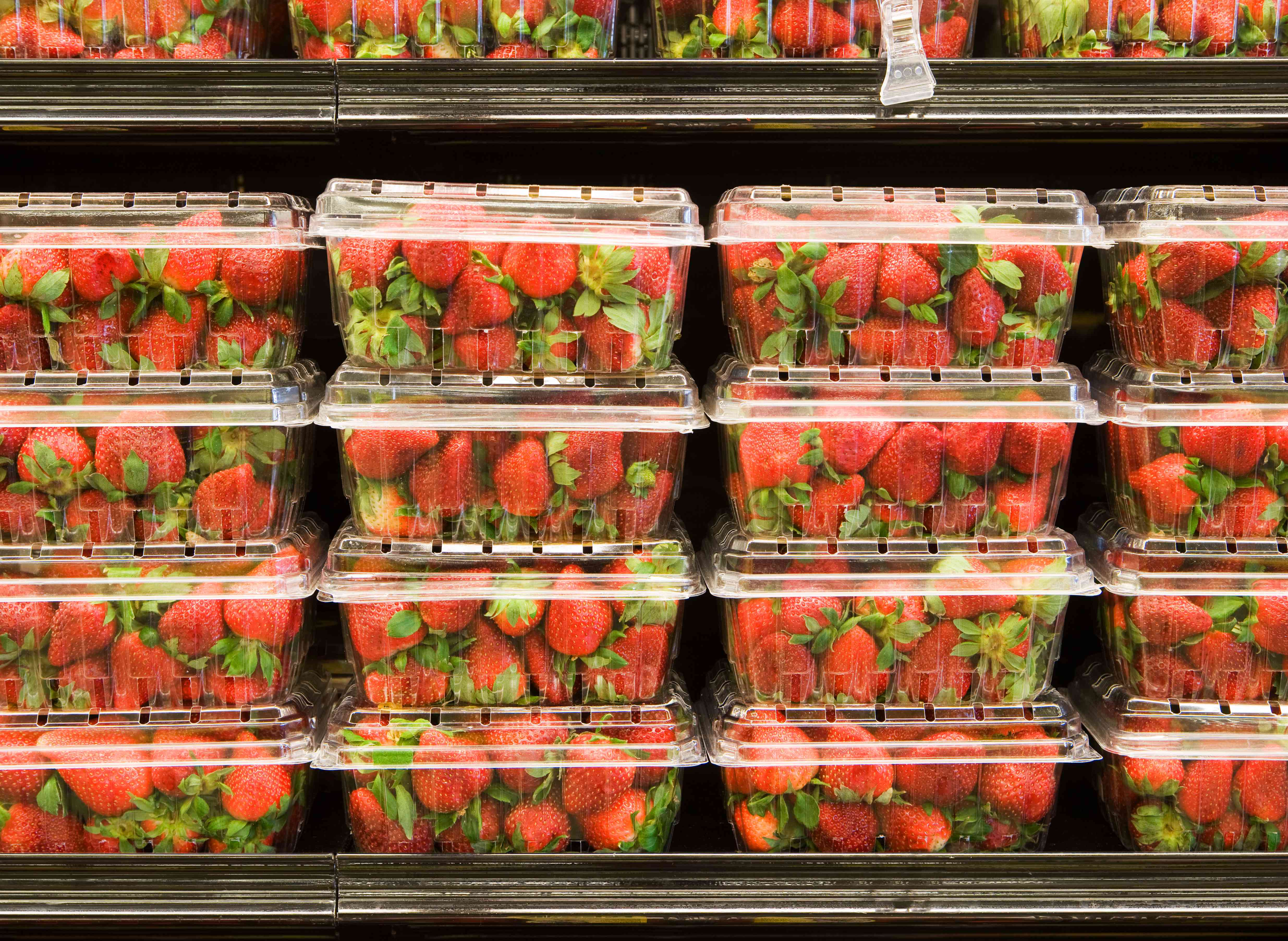There's a Chance Your Favorite Berries May Be Contaminated With Norovirus. The FDA Is Trying to Make Them Safer Here's how to reduce your risk in the meantime

Imported berries have been a common source of hepatitis A and norovirus outbreaks in the U.S., but the FDA has released a new plan to improve food safety

nycshooter / Getty Images
- The FDA has recently announced a new plan to improve the safety of imported berries.
- Fresh and frozen berries grown in other countries have been a common source of hepatitis A and norovirus outbreaks in the U.S.
- While the FDA improves production practices abroad, experts recommend thoroughly rinsing berries before eating them.
Since the late 1990s, berries have been the source of hepatitis A and norovirus outbreaks in the United States—and the Food and Drug Administration wants this to end.
That’s why the agency has developed a new prevention strategy aimed at lowering the risk of contamination of hepatitis A and norovirus—known as enteric viruses—in berries. The plan, announced in January, specifically targets berries imported into the country.
“The vast majority of fresh and frozen berries eaten in the U.S. are consumed safely,” FDA spokesperson Janell Goodwin of the agency’s Office of External Affairs told Health. “That said, since 1997, enteric virus outbreaks have been linked to imported fresh and frozen berries consumed in the U.S.”
In 2022 and 2023, for example, hepatitis A outbreaks stemmed from berries grown by a company in Baja California, Mexico.
As enteric viruses, hepatitis A and norovirus can cause severe gastrointestinal distress and other symptoms, and are primarily spread by coming into direct or indirect contact with the stool of an infected person.
The new FDA-led prevention strategy outlines actions aimed at improving food safety and sanitation practices across the global berry industry, as well as increasing scientific knowledge of how to detect and stop the spread of enteric viruses in berries.
“Through the prevention strategy, the FDA industry and other interest holders seek to address the root cause or likely causal factors of outbreaks linked to certain FDA-regulated foods and help limit or prevent future outbreaks,” said Goodwin.
How Berries Get Contaminated
A recent report by the World Health Organization and the Food and Agriculture Organization of the United States ranked frozen berries second among foods associated with global norovirus and hepatitis A outbreaks.
According to the U.S. Department of Agriculture, in 2023, about 64% of fresh blueberries and 95% of frozen blueberries available in the U.S. were imported. Half of frozen strawberries and 91% of fresh raspberries came from other countries.
Mexico is the top supplier of strawberries and raspberries to the U.S., while Mexico and Peru are the primary exporters of blueberries.
Berry-related outbreaks can happen when food safety practices designed to prevent contamination throughout the supply chain fail, said Goodwin.
“Imported fresh and frozen berries can pose slightly higher risk than domestic fresh or frozen berries due to differing food handling and processing practices,” Patti Ramos, MPH, RD, a lecturer with the Department of Nutritional Sciences at the University of Michigan School of Public Health, told Health.
Workers who handle berries can be infected with viruses and pass them on even though they don’t feel sick, according to the FDA.
“Workers who have the virus but do not suffer the symptoms may not properly wash their hands, contaminating berries as they are being picked,” Bryan Quoc Le, PhD, a food science consultant, told Health. “Handlers along the distribution chain may also touch and contaminate berries when they’re being inspected for bruises, damage, or mold.”
What the FDA Is Doing to Limit Imported Berry Contamination
The FDA’s new prevention strategy, created after investigations into outbreaks and discussions with industry experts, calls for:
- Proper hygiene practices of field workers
- Management of sanitary facilities
- Measures to monitor and limit the virus passing among farm and other facility workers
In addition to improving hygienic and sanitary measures, the FDA wants to better understand how viruses persist in agricultural and processing environments and in the berries themselves.
“One goal is to broaden scientific knowledge about the viability, persistence, detection, and mitigation of viruses in fresh and frozen berries, pre-and post-harvest environments, and agricultural water sources,” said Goodwin.
Quoc Le said he thinks the “FDA’s prevention strategy will be focused on using modern scientific methods to assess whether or not a risk is present in berries, combining laboratory analysis, data, and statistics to better pinpoint where issues are cropping up and stopping it at its source.”
How to Reduce the Risk of Foodborne Disease
Hepatitis A and norovirus are highly resistant and can survive freezing and processing, explained Ramos. In fact, frozen berries are more prone to contamination than fresh berries. “Freezing preserves the virus and allows it to survive for longer,” said Ramos.
Quoc Le advises looking for berries sourced locally or from domestic producers and avoiding frozen berries sourced from foreign imports.
If you do decide to consume berries—imported or domestic—Quoc Le and Ramos said it’s important to take certain precautions.
Be sure to rinse berries with cold water before eating them. For an even more thorough washing, add a teaspoon of baking soda per cup of cold water in a bowl and soak berries in the bowl for five to 10 minutes before rinsing.
When slicing fresh berries, wash utensils and surfaces with soap and water to avoid cross-contamination with other foods.
It can be tempting to avoid berries altogether over contamination fears, but Ramos said to keep in mind that there have been no enteric outbreaks linked to domestically grown berries in over 35 years. Plus, the fruits are exceptionally healthy.
“Berries are excellent sources of vitamin C, fiber, and antioxidants, making them nutritional powerhouses,” said Ramos. “As with any public health concern, consumers must weigh the risks and rewards and make the choice that is right for them.”
This story originally appeared on: Health News - Author:Cathy Nelson


















